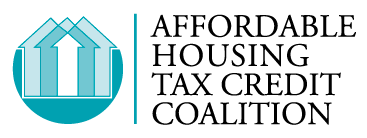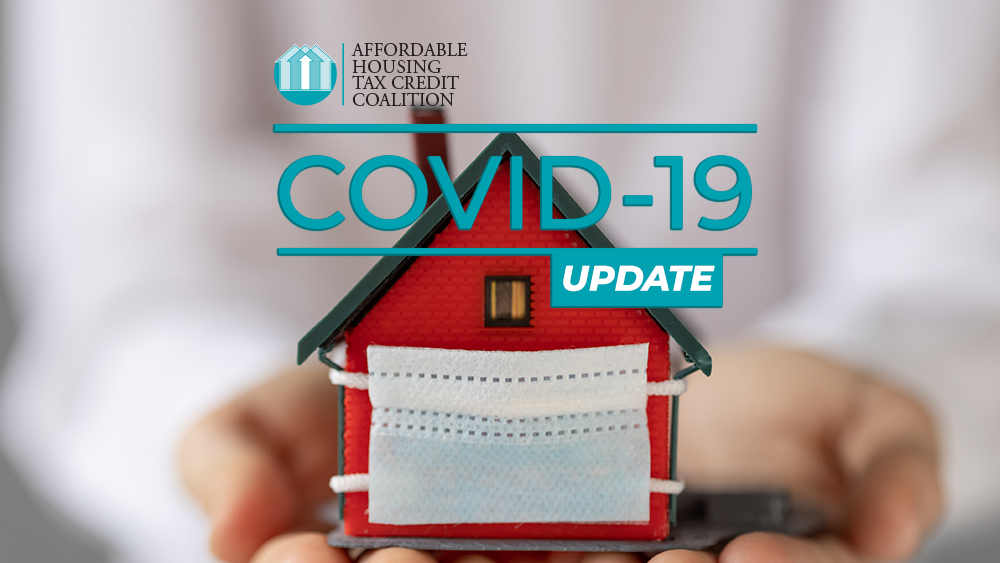Given the significant impact of the current COVID-19 crisis on the ability develop to build and preserve affordable housing, the AHTCC and our partners at the ACTION Campaign have provided recommendations to Congress that will help to mitigate negative effects and allow us to continue to build sorely needed homes for low-income households.
Under the current circumstances, which are significantly impacting and in many cases upending financing and construction, many Housing Credit developments are in jeopardy of missing program deadlines. To provide immediate assistance to Housing Credit properties already in the development process, the AHTCC and ACTION Campaign urge Congress to provide a one-year extension for three key deadlines:
- 10 percent test deadlines. Currently, at least 10 percent of the anticipated basis of a development must be expended within one year of the Housing Credit allocation. We propose temporarily extending this deadline to the end of the second year of allocation for properties that received Housing Credit allocations between December 31, 2016 and January 1, 2022.
- Placed in service deadlines. Buildings must currently be placed in service by the end of the second year after the calendar year of the Housing Credit allocation. We proposed temporarily extending this deadline to the end of the third year after the calendar year of allocation for properties that received Housing Credit allocations between December 31, 2016 and January 1, 2022.
- Rehabilitation expenditure deadlines. These are currently required to be placed in service within 24 months. We propose temporarily extending the rehabilitation expenditures deadline to be met at the close of 36-months.
To bolster future production and preservation of affordable housing, we are also urging Congress to enact a minimum 4 percent Housing Credit rate. With federal borrowing rates slashed in response to the COVID-19 crisis, the “4 percent” Housing Credit rate is at an all-time low of 3.12 percent, and will likely decline even further, threatening the viability of many critically needed properties. Enacting a minimum 4 percent rate would provide parity to the 9 percent Housing Credit rate, for which Congress enacted a minimum rate as part of the response to the 2008 economic collapse in recognition of the critical role of affordable housing in the recovery.
The AHTCC is also working with the IRS to advocate for a solution to allow Housing Credits to be claimed in certain cases without the final receipt of a Form 8609 – an issue we had already been working to address, but that has become even more urgent as the response to COVID-19 is likely to cause further processing delays. We are seeking one of two solutions:
- Change the instructions for the Forms 8609 and 8609-A to allow credits to be taken without an 8609 if there is reasonable cause for the delay, and/or
- Allow credits to be taken in the year it is earned if an 8609 is received within 30 months of the original return filing or beyond 30 months if the statute of limitations is extended, consistent with the approach used for historic rehabilitation credits.
Last night President Trump signed a second relief package in response to growing concern over the COVID-19 global pandemic to provide funding for free coronavirus testing, emergency paid sick leave, paid family medical leave, unemployment insurance, food assistance, and other health provisions, but no housing provisions.
A third relief package is already in the works, with Senate negotiations currently underway and an announcement this week from Senate Majority Leader Mitch McConnell (R-KY) that he intends for the Senate to stay in Washington, D.C., until a third package is completed. Republicans are discussing items such as direct fiscal stimulus to individuals in the form of tax rebates, low-interest loans and other assistance for impacted industries, including airlines, hospitality, and additional small business relief. Senate Democrats are focused on a robust unemployment insurance expansion, additional appropriations measures, as well as housing provisions. Their outline includes emergency rental assistance, emergency mortgage assistance, and supplemental support for federal housing. House Speaker Nancy Pelosi (D-CA-12) has also expressed support for an expansion of the refundable Earned Income Tax Credit as another form of fiscal stimulus and direct aid to individuals and families. Given the progression of the crisis and the economic fallout, a fourth and potentially other follow-up relief and recovery packages are possible.
The AHTCC will continue to advocate for policies to strengthen our affordable housing delivery system at every opportunity. Beyond the immediate changes above, we will also advocate for additional resources and flexibilities for affordable housing as part of any future economic recovery package. We encourage any suggestions and policy considerations from AHTCC members.
For additional information about the federal COVID-19 response as it relates to the Housing Credit, please see our new resource page. We will continue to update the page as more information becomes available



Comments are closed.